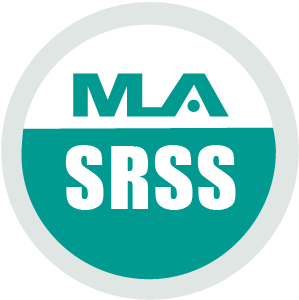What is this?
The Medical Library Association offers a multitude of professional development options for librarians who provide health and medical information from Continuing Education (CE) to mentoring to grant and scholarship opportunities. The Systematic Review Services Specialization (SRSS) Pathways offer and address skills that “promote the use of established guidelines, best practices, ethical synthesis practices, and transparent reporting in the service of reproducible scientific and biomedical research.” This systematic review (SR) competency is composed of two levels; I completed Level I on October 23!
What did it take?
Participants achieving Level 1 must complete 25 CE hours of core and elective courses covering SR fundamentals, project communication and management, advanced searching, documentation and reporting, and data management. Some courses included are:
- Troubleshooting Systematic Reviews: Refining the Research Question
- Systematic Searching: Improving Effectiveness and Efficiency
- Going Grey with Google Scholar for Systematic Reviews
- What’s Needed to Make a Literature Search Reproducible?
With a combination of on-demand and live course offerings, and most courses ranging from 1.5 to 3 credit hours, most participants complete pathways in 12 – 15 months.
Why is this important?
Evidence-based medicine emerged as a new form of teaching practice in 1990’s medical curriculums (Guyatt et al., 1992) and lends itself to effective and appropriate diagnosis and prescription of treatment for health related issues (MacGill, 2019). It wasn’t until about 10 years later when systematic reviews surfaced as the top methodology to communicate and confirm evidence to the medical research community (Tranfield et al., 2003)
Libraries were soon thereafter acknowledged as entities that play a major role in adding value and research rigor to SR work due to the intersection of data resources and comprehensive searching requirements involved in effective SR examples (Grant & Booth, 2009; McKibbon, 2006). The literature also indicates that librarian involvement – ranging from acknowledgment to authorship – reduces risk of bias inherently related to SR projects (Aamodt et al., 2019). Although SR and evidence-based protocols have roots in medical research, they are becoming more prevalent and accepted as an indicator of preferred practice in education and social science disciplines.
What’s next?
The SRSS Level II Pathway is the obvious next step in 2023 – 24. Here I’ll continue the journey and obtain exposure and training related to data management procedures, risk of bias tools, search hedge use and validation, and data visualization techniques in SR projects.
Thanks to ZSR for the continued and consistent support in library staff and faculty research interests and professional development endeavors!

8 Comments on ‘Colleen Completes Systematic Review Services Specialization Pathway’
Congrats Colleen! I know this was (and continues to be) hard work but I’ve already benefited from your knowledge and expertise in this area and I know our community and ZSR as a whole, will benefit from it too! Thank you for your work on this Colleen.
Congratulations Colleen! It’s always good to have tools to move forward and stay current.
Way to go, Colleen! Thanks for putting in the extra effort to become so knowledgable and for sharing your knowledge with us.
Great work, Colleen! Thank you for sharing this and bringing this expertise to ZSR!
Congratulations, Colleen! This is great! Our users and the library in general will benefit from your expertise. Good luck on Level II!!!!
Congrats, Colleen, those courses sound so useful! How wonderful that the MLA offers this opportunity.
Way to go, Colleen! This is a critical area of support and I’m glad you’re building your skills through this opportunity.
Colleen! What an incredible accomplishment! Thank you for investing so much time and effort to gain the expertise to support other librarians, faculty, and students in this important research area! I look forward to learning more from you!